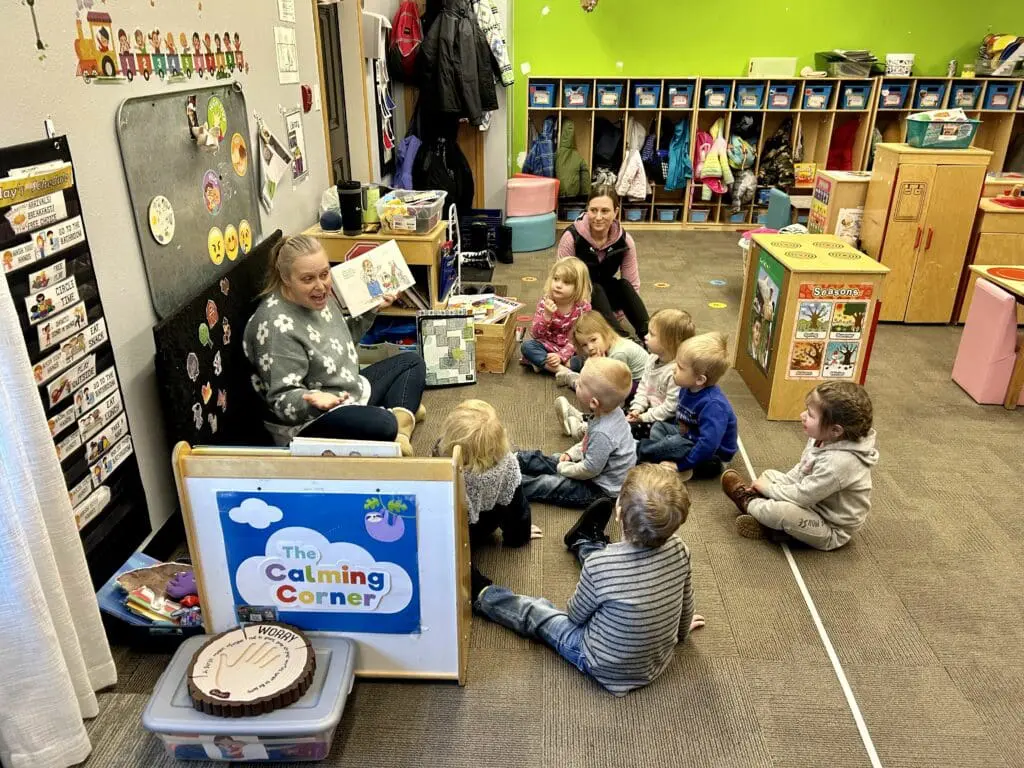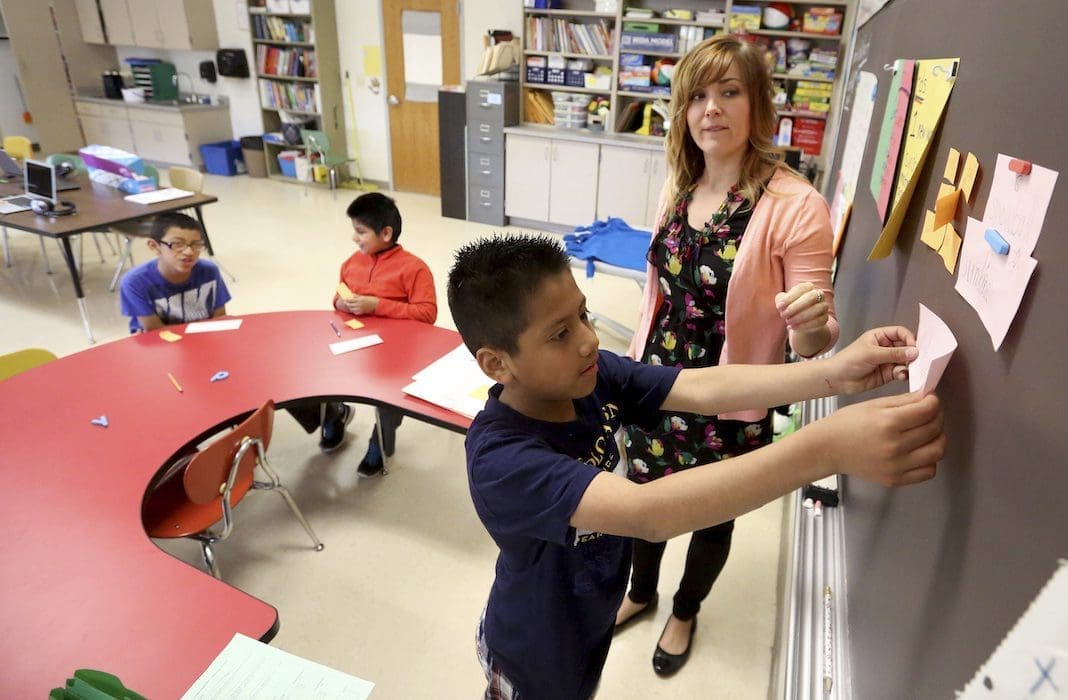‘It’s not working for anybody’: Wisconsin’s child care centers are in crisis
As state funding is set to expire, providers are growing more worried about the future.

On a bitterly cold morning, snow gear lined the halls at Future All Star’s Academy, the only licensed child care center in Juneau, northwest of Milwaukee. Inside, the kids were in their classrooms playing, enjoying story time and preparing for a snack, possibly unaware of the challenges their teachers faced.
Normally, the child care center has room for 48 children. Because of staffing shortages, however, about 10 slots remained empty, and the waiting list had more than 50 people on it.
“We’ve struggled. We’ve struggled a lot,” said owner Tricia Peterson.
Child care centers across Wisconsin are in crisis. They’re struggling to pay and recruit staff. Parents can’t keep up with rising tuition. And there aren’t enough child care openings to keep up with demand.
“I think a lot of the problems that we are seeing have always been problems. But they are growing exponentially. I think they’re affecting more people,” said Caitlin Mitchell, owner of Spots and Stripes Early Learning Center in Bloomer.
“It’s not working for anybody,” she said.
Providers are demanding more support, funding and recognition to solve the crisis.
In Wisconsin, the state used federal COVID-19 relief funding to launch the Child Care Counts program, which provided child care centers with funding to stay afloat. The funding was set to expire in January, but Democratic Gov. Tony Evers deployed $170 million in emergency funding to keep it going through June 2025, which he described as a stopgap measure.
Evers and Republican state legislators have been battling over solutions to the child care crisis for months. Evers originally proposed $340 million in the last budget to keep the Child Care Counts program going, but Republicans denied it and have proposed their own solutions, such as tax cuts.
A vicious cycle
In the first half of 2023, 181 child care providers in Wisconsin closed, according to the Wisconsin Department of Children and Families. As funding runs out, the state could lose 2,110 additional programs, according to the Century Foundation research institute.
The providers that remain open may need to keep increasing tuition rates to keep up with the operating costs. Some child care tuition costs more than in-state tuition at a University of Wisconsin school, according to a May 2023 report from the Wisconsin Policy Forum.
“It’s getting to the point where child care is becoming more of a luxury service because of the price, and it’s not something that your average family can afford anymore without having to make sacrifices in other places,” Mitchell said.
The effects of child care center closures could be devastating, especially for smaller, rural communities. Fifty-four percent of Wisconsinites live in a child care desert, according to the Center for American Progress.
Emily Payette recently closed one of the locations of her child care center, Auntie M’s, in rural Florence because, she said, staff moved through it like a revolving door. There are two other Auntie M’s locations in nearby Niagara, and she was feeling burnt out managing all three locations with limited help.
Florence County is a child care desert, according to CAP’s analysis. With a population of roughly 4,500, there are no child care centers in Wisconsin within 40 miles of the county, according to the DCF database.
“We have plenty of kids. There was plenty of need there. But there wasn’t the staff to provide it,” Payette said. “Letting down those families made me feel terrible, and letting down the Florence community made me feel terrible, but I knew that I had to do it for myself, for my mental health, because it was draining.”
Peterson began posting job openings at Future All Star’s Academy three years ago. Not many applied to the child care center in the rural community, and those who did apply had few qualifications or little education and would only last a couple of months. It wasn’t until last December that a qualified applicant applied.

Mitchell recently met with the two other child care centers in Bloomer to discuss how they can serve more families.
“At this point we all are full. We all have waitlists that are a mile long. It’s not about business competition anymore, it’s about, How can we provide care to the families in our town?” she said.
The Child Care Counts program “literally kept our program afloat,” Mitchell said. She, Payette and Peterson all used the funding to pay staff more. Now their employees are bracing for those pay bumps to disappear, and providers are worried they’ll have to raise rates to a price that more parents can’t afford.
“I’m not sure why our representatives and our legislative leaders thought that this one chunk of money was going to fix decades of fundamental problems,” Mitchell said. “It helped a lot of programs keep their doors open. But to just kind of erase it completely is —well, then we’re just kind of back to square one.”
Child care is a workforce issue, providers said. More parents are alternating with their partners to stay home with the kids or leaving the workforce entirely. Many child care workers join the profession because it allows them access to child care for their own children.
“Child care is a huge part of the economy and infrastructure. Without child care, many parents can’t work,” Payette said. “It’s like a vicious cycle. If you don’t have child care, you don’t have employees. If you don’t have employees, other businesses are suffering.”
Not just babysitters
Future All Star’s Academy sits just down the road from the Dodgeland School District at the edge of town. The motto on the day care’s sign reads, “Early care, where dreams begin.”
Outside a classroom, another sign reads, “The future of the world is in this classroom.” The children are in day care now, but in a few years they’ll be students moving through the school district, and after that workers and community members.
Providers said child care workers are often stigmatized as simply babysitters. But, they said, they’re helping children learn and grow in some of their most critical developmental years.
“I think people sometimes think that because they don’t have children, it’s not their problem. And that’s just not true. We’re raising the future of our community, and our business leaders and our legislators,” Mitchell said. “And if we are not investing in them now, we’re going to have serious consequences 20-30 years from now when there’s no one left.”




